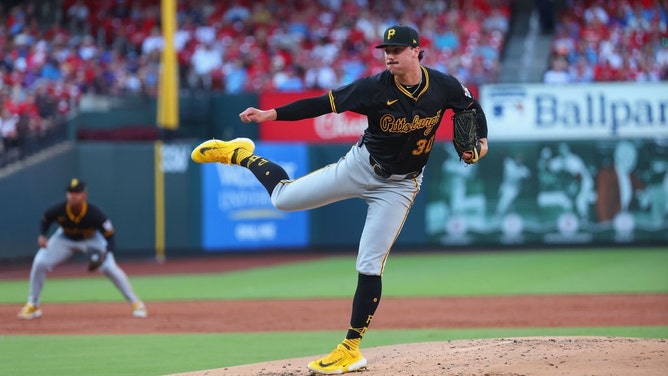Pittsburgh Pirates Blame Manager For Ownership Failures, Wasting Paul Skenes
At the end of the 2024 season, the Pittsburgh Pirates seemed to be on the upswing.
The debut of all-world pitcher Paul Skenes had gone even better than expected, with the 22-year-old winning the National League Rookie of the Year award. Oneil Cruz took a step forward, there were several top prospects expected to debut in 2025, and Jared Jones showed flashes of brilliance, hinting at a building block two starter.
All the Pirates needed was to add some more consistent offense behind Cruz and Bryan Reynolds, sign some bullpen help, and hope for some injury luck to feel like they could challenge for a postseason spot. Instead, less than two months into the season, Pittsburgh fired manager Derek Shelton after a 12-26 start.
When asked about it this week, Skenes told reporters that he wasn't surprised.
"Unfortunately I wasn't shocked," Skenes said. "At the end of the day, I mean, we're 12-26. So someone's gotta be held accountable. Unfortunately, right now, it's him. That's just kinda how it goes, but I don't know that it fixes the root of the issue which is that we need to play better. So that's been the messaging today, that's been the messaging for a little bit now. And we still gotta do that."
Someone does need to be held accountable for the poor start; it just shouldn't have been Shelton. It's team owner Bob Nutting.

ST LOUIS - Paul Skenes of the Pittsburgh Pirates delivers a pitch against the St. Louis Cardinals at Busch Stadium on June 11, 2024. (Photo by Dilip Vishwanat/Getty Images)
Pittsburgh Pirates Could Be Better, If Ownership Cared
The Pirates' offseason signings included 38-year-old Andrew McCutchen, Andrew Heaney, 37-year-old Tommy Pham, Caleb Ferguson and Adam Frazier. That's pretty much it.
This isn't a one-off; Pittsburgh hasn't signed a multi-year free agency contract in nearly a decade. How do they expect to win with any regularity when they won't spend money to bring in good players?
The answer is, they don't, and ownership doesn't particularly care.
Nutting is content to collect revenue-sharing money, television income, and do just enough to attract 15-20,000 fans per game. That's it. If they happen to win 80+ games, great, if they don't, his profit is secured before the season even starts. So why take any risks?
That's where the accountability needs to be; the fact that a Major League Baseball team is barely functioning. And ownership seems completely disconnected from reality.
Earlier this season, Nutting in a Q&A said he believes he's provided the necessary "tools and resources" for the Pirates to win: "Yes. I think that I’ve done everything that I can to provide the tools and resources to the team. There is a point where it becomes execution."
If he seriously believes that, it's no wonder Pittsburgh lags far behind other small-market teams.
Just look at the San Diego Padres, who play in one of the smallest markets in the league. They're averaging over 42,000 fans per game, second in baseball, because ownership has actually invested in making the team competitive. Yes, they've made mistakes with high-value contracts. But they're making so much from ticket sales it's been worth the risk.
When ownership refuses to invest, it takes a perfect storm of young talent all succeeding at once in order to become competitive. Any reasonable outside observer would say the Pirates did not have enough young talent to support Skenes in 2025. And with a likely record-breaking contract on the horizon for him, assuming he's healthy, the clock is already ticking on his time in Pittsburgh.
Someone needs to be held accountable for potentially wasting it. It's just that the person who is responsible never actually will be.